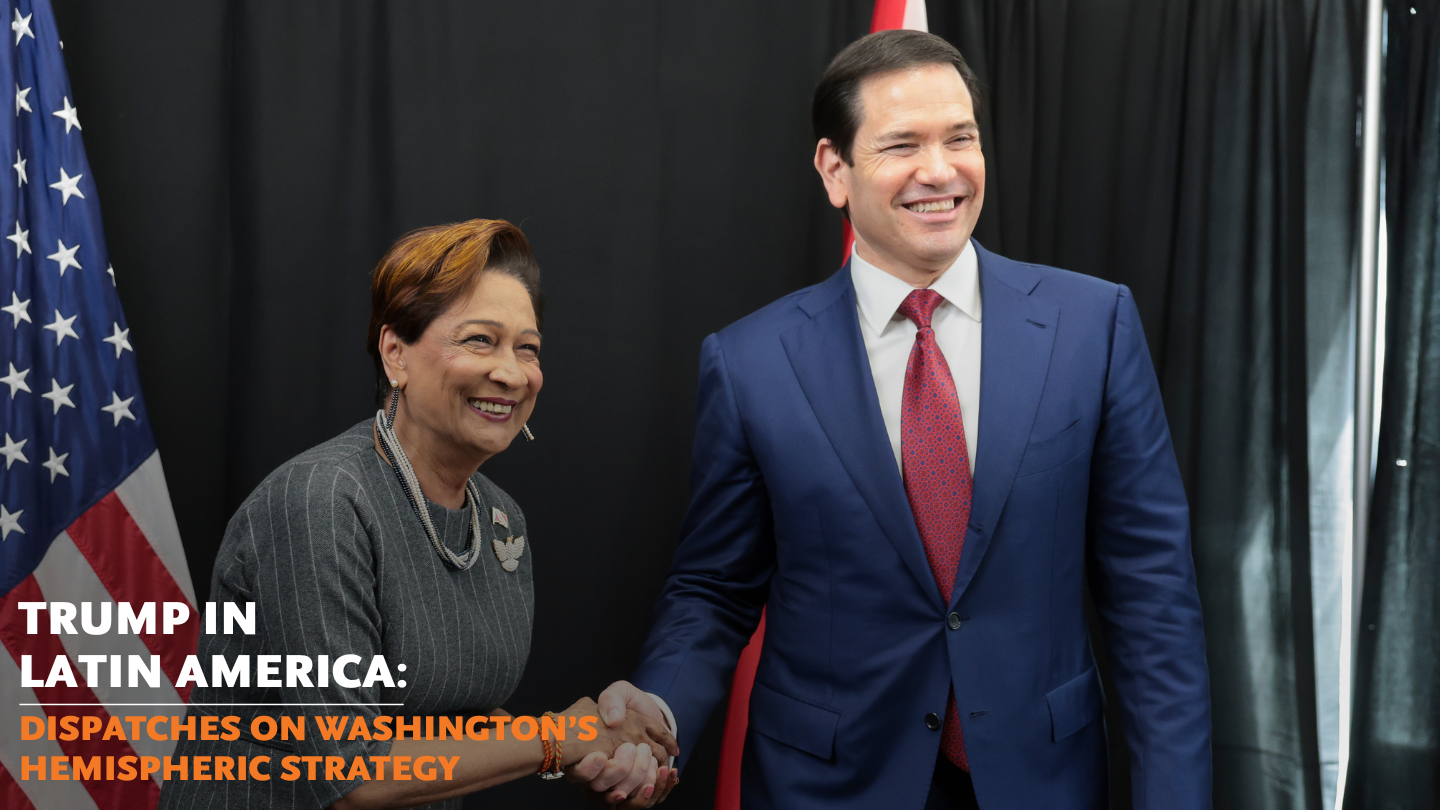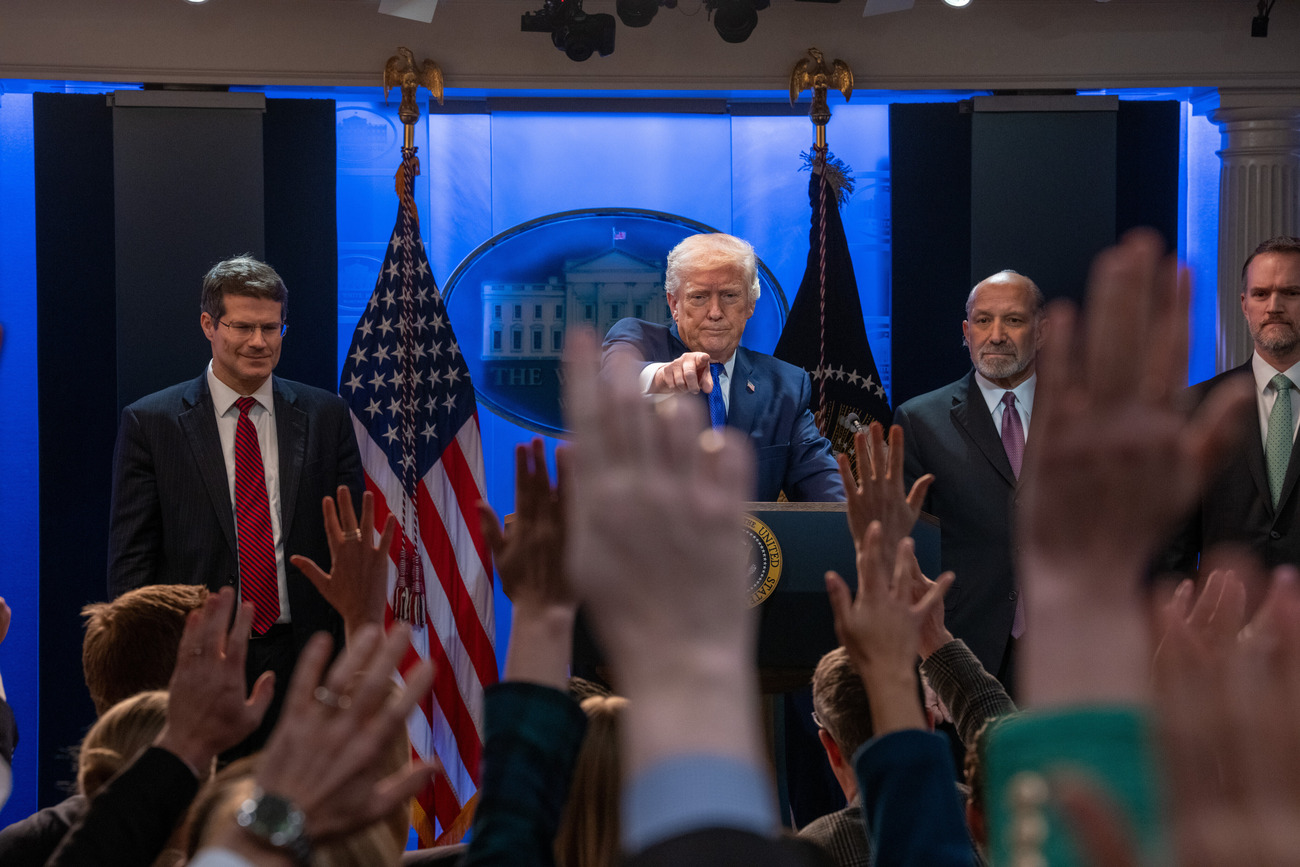Super Latino Tuesday
Super Latino Tuesday
As U.S. voters hit the polls in 24 primaries on February 5, the Hispanic vote played a crucial role, particularly in delegate-heavy California. The Latino electorate helped make John McCain the Republican front runner. Democratic hopeful Hillary Clinton has relied on a Hispanic support base, but some see rival Barack Obama making inroads.
With voters in a record number of U.S. states turning out to cast ballots for 2008 presidential candidates on February 5, the day racked up nicknames from Tsunami Tuesday to Mega Tuesday to the Tuesday of Destiny. But, with the candidates—and U.S. media—dedicating increased attention to the Hispanic vote, the day earned another name: Super Latino Tuesday. While 24 states (map) held primaries or caucuses on what is most commonly-known as Super Tuesday, many of those commanding a large number of delegates also have high concentrations of Latino voters. California, Arizona, Illinois, and New Jersey—all of which held primaries February 5—account for nearly half of the eligible Hispanic voters in the United States.
Primaries in Florida and Nevada already showed the importance of the Latino vote for candidates in this presidential election cycle. In Florida, Senator Hillary Clinton of New York earned more Hispanic votes than her rival Senator Barack Obama of Illinois by a 2 to 1 margin, helping her gain 58 percent of the vote there. (The state’s Democratic delegates may not be included in the count for the nomination because of a disagreement with the national party over a decision to move up the primary date). Similarly, Republican candidate Senator John McCain of Arizona pulled in over 35 percent more of the Hispanic vote than his next closest rival, former Massachusetts Governor Mitt Romney. While McCain’s moderate immigration stance hurt his chances early in his campaign, his position helped him in Florida, where he won by a margin of 13 percent.
However, the Latino vote will likely affect the outcome for Democratic candidates more so than for Republicans. As a study by the Pew Hispanic Center shows, roughly 57 percent of Hispanic voters now consider themselves aligned with the Democratic Party, as opposed to just 23 percent in support of the Republican Party. Although Latinos only make up 9 percent of the eligible electorate across the country, they are registering to vote at a rate five times higher than the rest of the U.S. population, according to the United States Hispanic Leadership Institute.
California serves as the state with the most coveted Latino electorate: with a Hispanic population of 30 percent, the state accounts (PDF) for 28 percent of the country’s Latino voters. Clinton, widely considered to command an advantage with Hispanic voters, won the endorsement of Los Angeles Mayor Antonio Villaraigosa and United Farm Workers Co-Founder Dolores Huerta. A Los Angeles Times op-ed by experts from the Tomás Rivera Policy Institute notes that Clinton’s ability to align herself with prominent Hispanic leaders, coupled with “more than a decade of name recognition,” earned her a 2 to 1 margin with Latino voters in California by the end of January. Yet Obama picked up a surprise endorsement days before “Super Martes” from Los Angeles-based La Opinión, the largest Spanish-language daily in the United States.
On Tuesday, Latino voters overwhelmingly chose Clinton in the key states of California, New York, and New Jersey. In December, the Carnegie Endowment’s John Judis called Clinton’s standing among Hispanic voters her “firewall.” This proved true in the Nevada caucus, where Latino support gave Clinton a significant boost to give her a victory over Obama, despite endorsements from labor unions for the Illinois senator. But Huffington Post columnist Roberto Lovato points out that the Obama campaign’s efforts has advanced in some of its efforts to break through, particularly in states such as Arizona. Moreover, because of his popularity with the Hispanic electorate in swing states, Obama would have a greater chance of winning the electoral college than Clinton in a general election, argues Louis Nevaer, author of the Rise of the Hispanic Market in the United States.
Updated February 6, 2008.








